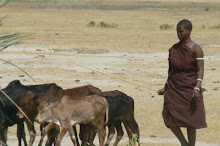The overwhelming majority of Southern Sudanese voters living abroad also backed the separation.
If the process continues unchecked, Southern Sudan could become the world's newest country in July.
Border demarcation, oil rights and the status of the contested region of Abyei still need to be negotiated.
UN chief Ban Ki-moon praised the conduct of the election, but said more still needed to be done.
He said: 'We are still very much concerned about post-referendum issues - border security, citizenship, wealth sharing, demarcation, popular consultations in South Kordofan and Blue Nile states, and most importantly the status of Abyei.
'Consolidating the peace in North and South Sudan will require statesmanship, wisdom, patience and the consistent engagement and support of the international community.'
Southern Sudan's referendum commission said more than 99 per cent of voters opted to secede from the north in a ballot held earlier this month.
The vote, held in early January, was a condition of a 2005 peace agreement which ended a north-south civil war that had lasted for two decades and killed two million people.

People react in Juba, South Sudan, after the result of the referendum on secession is announced yesterday

People release pigeons after 99 per cent of voters opted to split from North Sudan

Justice Chan Reec Madut, head of the commission's southern bureau, said yesterday that voter turnout in the 10 states in the south was 99 per cent.
He said just 16,000 people chose to remain united with the north, while 3.7million voted for separation.
In northern Sudan, 58 per cent of voters chose secession, according to chairman of the referendum commission Mohamed Ibrahim Khalil.
He said: 'These results lead to a change of situation. That change relates only to the constitutional form of relationship between north and south.
'North and south are drawn together in indissoluble geographic and historic bonds.'

















.png)






No comments:
Post a Comment